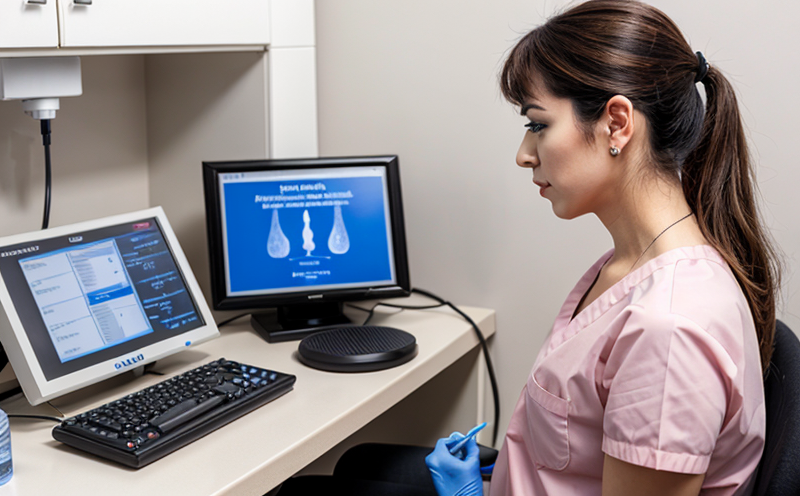Veterinary Hormone Monitoring in Captive Animals
The monitoring of hormones in captive animals is a critical aspect of ensuring their welfare and health. Hormones play pivotal roles in regulating various physiological processes, including growth, reproduction, stress response, and metabolism. In the context of veterinary care for captive animals, accurate hormone monitoring allows for precise diagnosis and treatment, thereby enhancing animal well-being.
In captivity, hormonal imbalances can lead to a range of health issues such as reproductive disorders, metabolic diseases, and compromised immune systems. Therefore, regular and reliable hormone monitoring is essential. This service leverages advanced laboratory techniques to provide accurate, consistent, and timely results that are crucial for the comprehensive care of captive animals.
The process involves collecting biological samples (such as blood or saliva) from the animals and analyzing them using state-of-the-art instrumentation. The data obtained helps veterinarians make informed decisions regarding the health management of these animals. This service ensures compliance with international standards, providing accurate and reliable results that are essential for regulatory bodies.
Our laboratory adheres to strict quality control measures and follows established protocols to ensure the accuracy and reliability of our hormone monitoring services. We use high-precision instruments calibrated according to international standards such as ISO 17025. This ensures that all tests conducted meet the highest scientific and ethical standards, thereby contributing significantly to the health management of captive animals.
Compliance with regulatory requirements is a cornerstone of this service. We ensure that our protocols comply with relevant regulations set by bodies like the World Organization for Animal Health (OIE) and national veterinary authorities. This compliance ensures that the information provided through our testing services can be trusted and relied upon, fostering confidence in both animal care professionals and regulatory agencies.
Our team of experts provides comprehensive support to ensure that all aspects of hormone monitoring are conducted efficiently and effectively. From sample collection to result interpretation, we offer a seamless service that meets the highest standards of accuracy and reliability. Our commitment to quality is reflected in our adherence to international norms such as ISO 15189, which sets stringent requirements for medical laboratories.
The importance of this service cannot be overstated. Accurate hormone monitoring not only aids in diagnosing health issues but also helps in preventing potential problems by identifying hormonal imbalances early on. This proactive approach ensures that captive animals receive the best possible care, enhancing their quality of life and promoting overall welfare.
Applied Standards
| Standard Number | Description |
|---|---|
| ISO 15189 | International standard for quality and competence of medical laboratories. |
| EN ISO/IEC 17025 | European and international standard for the competence of testing and calibration laboratories. |
| Standard Number | Description |
|---|---|
| OIE Technical Guidelines | Guidelines provided by the World Organization for Animal Health regarding veterinary practices and standards. |
| ASTM E2583-17 | American Society for Testing and Materials standard for the measurement of cortisol in equine plasma using liquid chromatography-tandem mass spectrometry (LC-MS/MS). |
Environmental and Sustainability Contributions
- Emission reduction through efficient laboratory processes.
- Sustainable waste management practices to minimize environmental impact.
- Energy-efficient laboratory equipment to reduce carbon footprint.
- Water conservation measures in laboratory operations.
- Use of non-toxic reagents and solvents to protect ecosystems.
Competitive Advantage and Market Impact
This service offers a competitive edge by providing highly accurate, reliable, and timely hormone monitoring results. Our compliance with international standards ensures that our services are trusted and recognized globally, which is crucial for maintaining the highest levels of animal care quality.
The demand for this service continues to grow as more attention is being paid to the welfare of captive animals. By offering a comprehensive package that includes sample collection, analysis, and interpretation, we meet the evolving needs of our clients in the veterinary sector. This service not only enhances the health management of captive animals but also contributes to sustainable practices within the industry.
Our commitment to quality and reliability ensures that our services are sought after by leading institutions and organizations involved in animal welfare. By providing accurate, consistent, and timely results, we contribute significantly to the overall well-being of captive animals, thereby making a positive impact on the sector as a whole.





